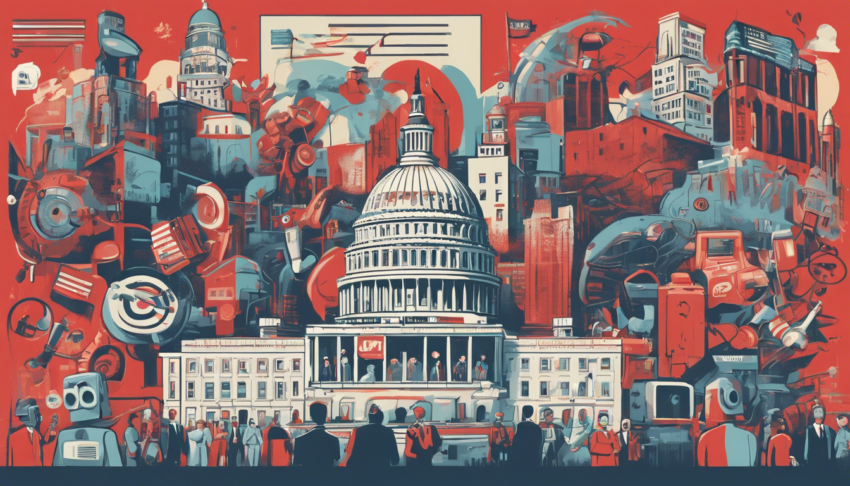In recent months, the landscape of artificial intelligence (AI) regulation in the United States has pivoted dramatically, especially with the Republican Party regaining control.
Under the previous administration, efforts focused on establishing robust AI safeguards aimed at protecting individual rights while fostering innovation.
However, the incoming administration, led by President-elect Donald Trump, signals a departure from these priorities, placing a new emphasis on free speech and human flourishing in the technology’s development.
This article will explore the implications of this political shift on AI regulation, highlighting the complexities and competing interests at play.
Key Takeaways
- The shift to Republican control may lead to a rollback of AI regulations aimed at protecting individual rights.
- Republican leaders emphasize prioritizing free speech and innovation over stringent AI regulations.
- Bipartisan interest in AI regulation, particularly concerning national security, indicates potential for future collaboration.
The Republican Party’s Approach to AI Regulation
## The Republican Party’s Approach to AI Regulation
As the United States transitions into an era of full Republican control, the landscape of artificial intelligence (AI) regulation is poised for significant transformation.
Under President Joe Biden, there were concerted efforts to implement safeguards that not only protected individual rights but also fostered innovation within the burgeoning AI sector.
However, with President-elect Donald Trump signaling a desire to roll back these measures, the Republican platform is shifting towards emphasizing the importance of free speech and human flourishing in AI development.
The uncertainty surrounding the future of AI regulations is palpable, with legislators divided on how best to proceed.
Some Republicans are keen on harnessing AI for national security purposes and tackling issues such as the spread of non-consensual explicit images.
However, other critical areas, notably AI’s influence in elections and its role in misinformation, might take a backseat as the party prioritizes the promotion of innovation and freedom of expression.
Representative Jay Obernolte illustrates this balanced approach, advocating for the benefits of AI in enhancing productivity and driving economic growth while being vigilant about the potential risks associated with its use.
Despite previous gridlock, which left the regulatory landscape largely unaddressed, there seems to be a glimmer of bipartisan interest emerging in specific domains of AI regulation—especially in relation to national security concerns.
Democratic senator Gary Peters emphasized that discussions between some Republicans and Democrats on AI-related topics are not entirely out of the question.
Yet, one of the major hurdles in achieving regulatory consensus remains the First Amendment implications.
These complexities are further exacerbated by the fact that the Republican party has actively employed AI technology in their campaigns.
In conclusion, the internal dynamics within the Republican party are likely to play a crucial role in shaping the future direction of AI regulation in the United States.
As the dialogue continues, the balance between fostering innovation and addressing ethical concerns will be critical in determining how the nation navigates the evolving AI landscape.
Balancing Innovation and Free Speech in AI Development
The intersection of AI innovation and free speech is becoming a focal point as the U.S.
grapples with its regulatory future.
Amidst the clamor for progress, Republican leaders are advocating a framework that supports tech advancements while minimizing constraints that could suppress free expression.
This approach is reflected in discussions around harnessing AI to bolster national security—addressing threats while still promoting the industry’s growth.
Lawmakers are facing critical choices about which regulatory focus will prevail: should they emphasize leveraging AI to boost the economy or rein in its potential to spread misinformation?
As the party navigates these waters, the dialogue highlights the importance of maintaining a careful balance that respects individual rights while also embracing the transformative power of AI to enhance public and economic life.
Support Us: Check out our recommended products on Amazon.


